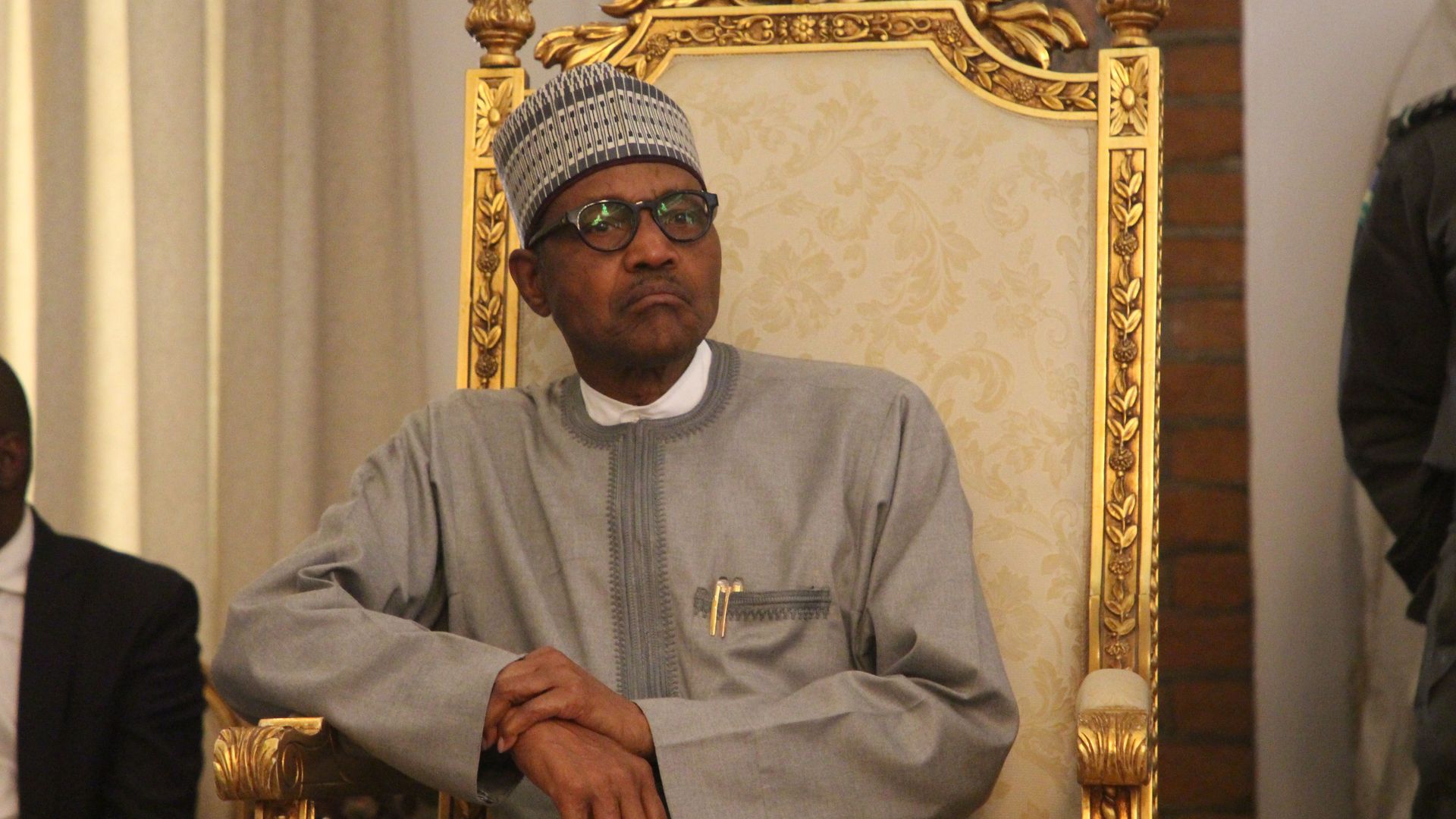

Nigeria’s government is doubling down on its decision to ban Twitter indefinitely, with regulators Monday ordering broadcasters to stop using Twitter even to gather news, and the foreign minister summoning Western ambassadors whose countries criticized the ban.
Why it matters: Twitter has been a powerful tool for younger Nigerians to mobilize, including during the massive #EndSARS protests last year against police brutality. The ban could have economic repercussions for Africa's most populous country, which has a burgeoning tech sector, and it sends an ominous signal about the country’s democracy.
How it happened: The ban was announced a day after Twitter deleted a tweet in which President Muhammadu Buhari threatened a secessionist movement in southeastern Nigeria and seemed to allude to the civil war (1967–1970) in which Buhari served as a military commander.
In announcing the ban, the government called Twitter a source of misinformation and a threat to Nigeria's stability, while noting that rebel leaders had been allowed to tweet incendiary things without facing such censorship.
Misinformation and incitement to violence on social media are genuine problems in Nigeria, says Zainab Usman, director of the Carnegie Endowment’s Africa program, but the government's rationale was highly “cynical."
“This ban reinforces perceptions that the government is not very tolerant of criticism and that it is more preoccupied with its own survival than handling the serious issues of violent crime and insecurity across many parts of Nigeria,” Usman says.
The backstory: Buhari is a former military ruler who returned as a democrat and is now halfway through his second and final term.
"He’s never been able to shake a general’s intolerance for dissent,” says Judd Devermont, director of the Africa program at the Center for Strategic and International Studies, and he currently leads “a country under siege."
"In every one of its six geographic zones, there is conflict and criminality or secessionist movements," says Devermont.
Under intense pressure for its handling of the security situation, Buhari’s government has been cracking down on journalists and civil society activists, Devermont says.
“I’m deeply worried about Nigeria’s democracy,” he continues. One key test will be whether the National Assembly applies any pressure on Buhari over the ban this week.
Between the lines: The ban also exposes a vast gulf between Nigeria’s young and increasingly tech-savvy population and its aging political elites.
Tweeting is now a crime, and the attorney general is calling for prosecutions. But Nigerians are flocking to virtual private networks, and many are continuing to tweet.
There could be further restrictions coming. The government said on Friday that other social media platforms like Facebook would have to go through a licensing process.
The big picture: Nigeria isn't alone. Police in New Delhi visited Twitter's offices there two weeks ago after Twitter labeled a tweet by a spokesman for Prime Minister Narendra Modi's party as "manipulated media."
Modi's government gave Twitter a final warning to comply with new social media regulations or face "unintended consequences," Reuters reported on Saturday.
|